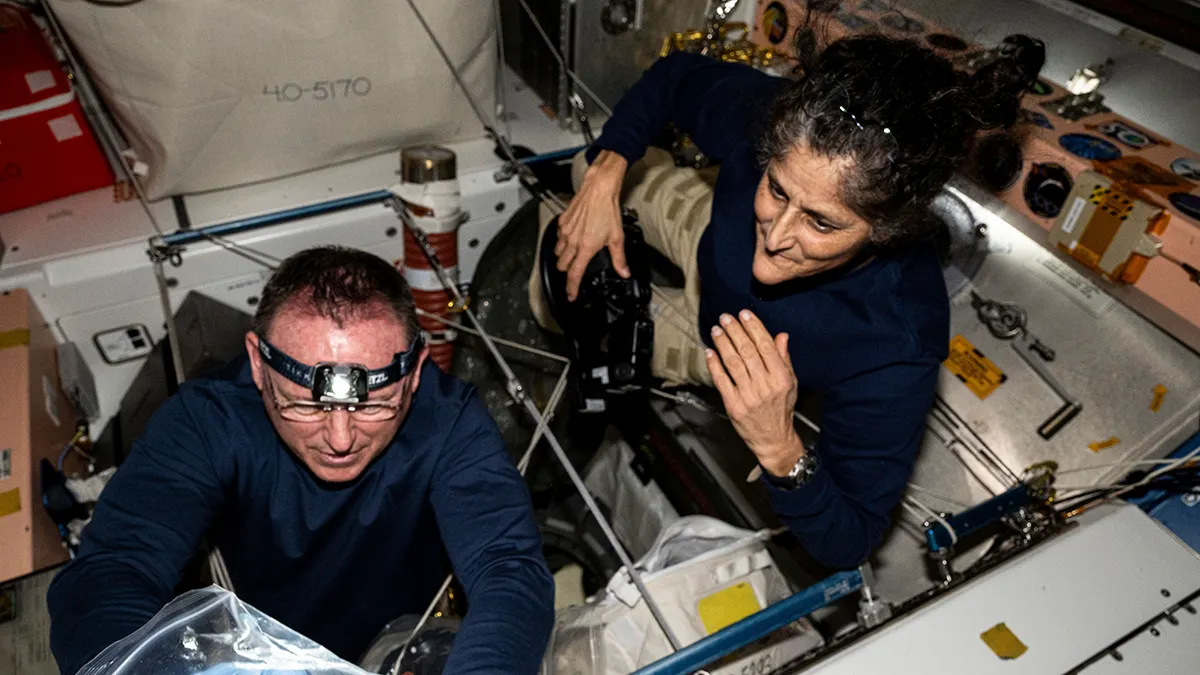Boeing's troubled Starliner departs the International Space Station without astronauts
Boeing's Starliner capsule undocked and departed from the International Space Station, stranding astronauts aboard until another vehicle can be launched and return them home.
Boeing’s Starliner capsule undocked from the International Space Station Friday evening and headed back to New Mexico without any crew.
Butch Wilmore and Suni Williams will remain behind at the space station until February. They are expected to return to Earth with a SpaceX crew that will likely launch for the ISS later this month with two empty seats on what NASA jokingly called an "orbital Uber" Friday.
Sending the astronauts back on Starliner was determined to be too risky by NASA because the capsule has struggled with thruster troubles and helium leaks. Wilmore and Williams were originally expected to leave the ISS in June, just a week after launch, making an eight-day mission more than an eight-month ordeal.
After thruster tests of the capsule, Boeing believed Williams and Wilmore could safely ride back in the capsule but was overridden by NASA.
NASA ASTRONAUT SAYS STARLINER CREW LIKELY TO CHANGE EXERCISE ROUTINE DURING EXTENDED ISS STAY

Boeing Starliner's unmanned capsule fires its thrusters as it pulls away from the International Space Station Friday. (NASA via AP)
NASA reported Starliner had "good attitude and good control" shortly after the fully automated capsule left the space station "on a perfect trajectory" back to Earth.
It is expected to land at the White Sands Space Harbor in New Mexico about six hours after its undocking.

Starliner's unmanned capsule undocked from the ISS Friday evening. (NASA)
"She’s on her way home," Williams radioed after Starliner left the space station.
NASA astronaut Nick Hague and Aleksandr Gorbunov, a Roscosmos cosmonaut, are expected to launch for the space station at the end of September on what was originally a four-person mission.
NASA astronauts Zena Cardman and Stephanie Wilson were cut from the mission to make room for Williams and Wilmore to return home on the SpaceX capsule.

Butch Wilmore, left, and Suni Williams inspect safety hardware aboard the International Space Station Aug. 9. (NASA via AP)
The U.S. had previously relied on Russia to ferry astronauts to the ISS after the shuttle program was retired in 2011, a decision that came after the Space Shuttle Columbia disintegrated upon reentry in 2003, killing all seven astronauts.
CLICK HERE TO GET THE FOX NEWS APP
SpaceX began taking astronauts to the space station with its rockets in 2020 after both it and Boeing were contracted by NASA.










































